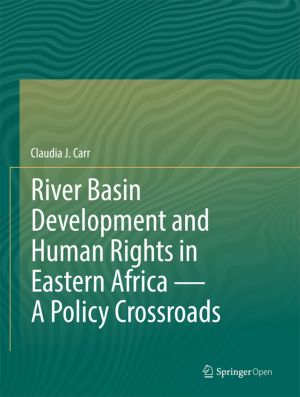
This book offers a devastating look at deeply flawed development processes driven by international finance, African governments and the global consulting industry. It examines major river basin development underway in the semi-arid borderlands of Ethiopia, Kenya and South Sudan and its disastrous human rights consequences for a half-million indigen...
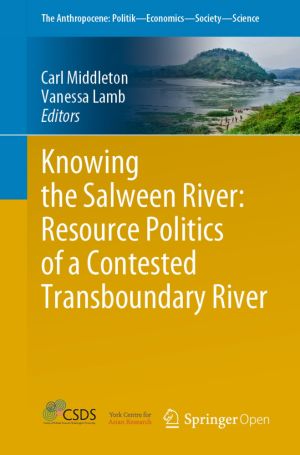
This book focuses on the Salween River, shared by China, Myanmar, and Thailand, that is increasingly at the heart of pressing regional development debates. The basin supports the livelihoods of over 10 million people, and within it there is great socio-economic, cultural and political diversity. The basin is witnessing intensifying dynamics of reso...
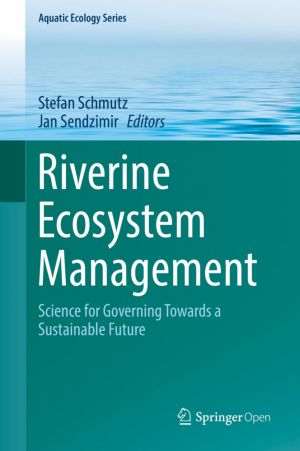
This book surveys the frontier of scientific river research and provides examples to guide management towards a sustainable future of riverine ecosystems. Principal structures and functions of the biogeosphere of rivers are explained; key threats are identified, and effective solutions for restoration and mitigation are provided. Rivers are among ...
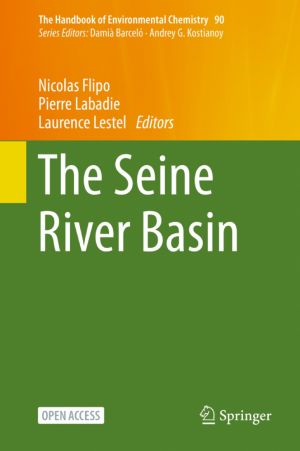
This open book reviews the water-agro-food and socio-eco-system of the Seine River basin (76,000 km2), and offers a historical perspective on the river's long-term contamination. The Seine basin is inhabited by circa 17 million people and is impacted by intensive agricultural practices and industrial activities. These pressures have gradually ...
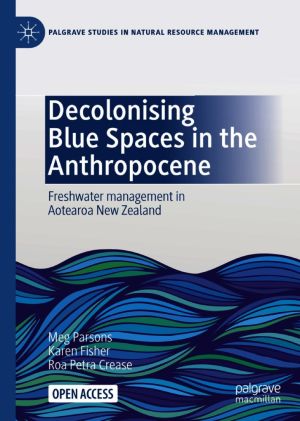
This open book crosses disciplinary boundaries to connect theories of environmental justice with Indigenous people's experiences of freshwater management and governance. It traces the history of one freshwater crisis - the degradation of Aotearoa New Zealand's Waipā River - to the settler-colonial acts of ecological dispossession resulti...
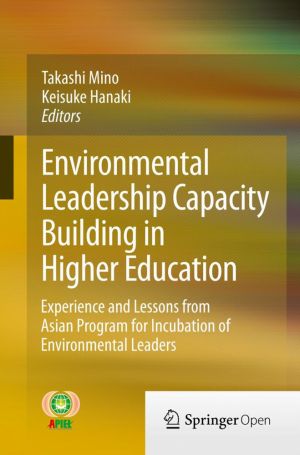
The Graduate Program in Sustainability Science under the Department of Urban Engineering of The University of Tokyo has been running an environmental leadership education program at the graduate student level since 2007 called the Asian Program for Incubation of Environmental Leaders (APIEL). This book describes the University's experiences in...
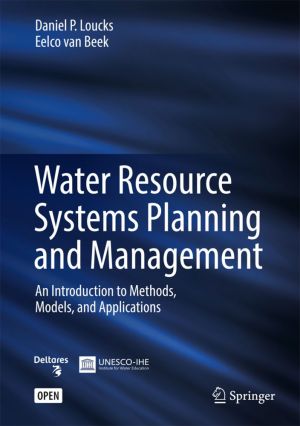
This revised, updated textbook presents a systems approach to the planning, management, and operation of water resources infrastructure in the environment. Previously published in 2005 by UNESCO and Deltares (Delft Hydraulics at the time), this new edition, written again with contributions from Jery R. Stedinger, Jozef P. M. Dijkman, and Monique T...
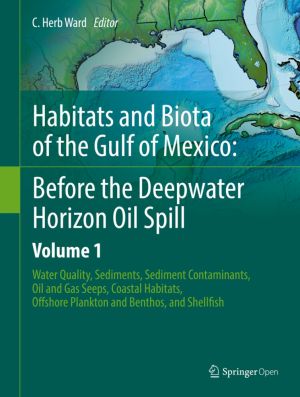
The Gulf of Mexico is an open and dynamic marine ecosystem rich in natural resources but heavily impacted by human activities, including agricultural, industrial, commercial and coastal development. Nutrients and pollutants from coastal communities and dozens of rivers flow into the Gulf, including material from the Mississippi River watershed, whi...
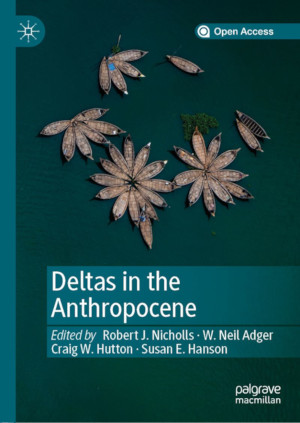
The Anthropocene is the human-dominated modern era that has accelerated social, environmental and climate change across the world in the last few decades. This book examines the challenges the Anthropocene presents to the sustainable management of deltas, both the many threats as well as the opportunities. In the world's deltas the Anthropocen...

Exploring indigenous life projects in encounters with extractivism, the present open access volume discusses how current turbulences actualise questions of indigeneity, difference and ontological dynamics in the Andes and Amazonia. While studies of extractivism in South America often focus on wider national and international politics, this contribu...
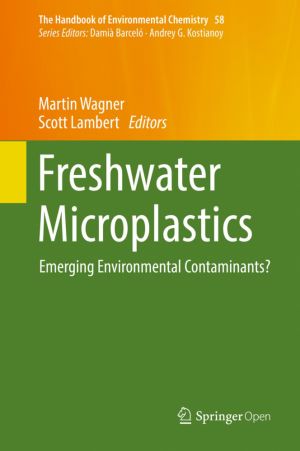
This volume focuses on microscopic plastic debris, also referred to as microplastics, which have been detected in aquatic environments around the globe and have accordingly raised serious concerns. The book explores whether microplastics represent emerging contaminants in freshwater systems, an area that remains underrepresented to date. Given th...
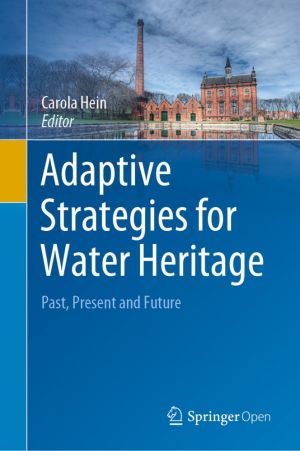
This book, building on research initiated by scholars from the Leiden-Delft-Erasmus Centre for Global Heritage and Development (CHGD) and ICOMOS Netherlands, presents multidisciplinary research that connects water to heritage. Through twenty-one chapters it explores landscapes, cities, engineering structures and buildings from around the world. It ...
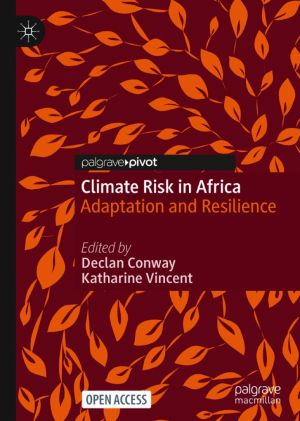
This open book highlights the complexities around making adaptation decisions and building resilience in the face of climate risk. It is based on experiences in sub-Saharan Africa through the Future Climate For Africa (FCFA) applied research programme. It begins by dealing with underlying principles and structures designed to facilitate effective e...
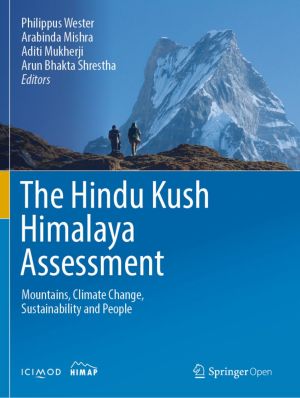
This open access volume is the first comprehensive assessment of the Hindu Kush Himalaya (HKH) region. It comprises important scientific research on the social, economic, and environmental pillars of sustainable mountain development and will serve as a basis for evidence-based decision-making to safeguard the environment and advance people's w...
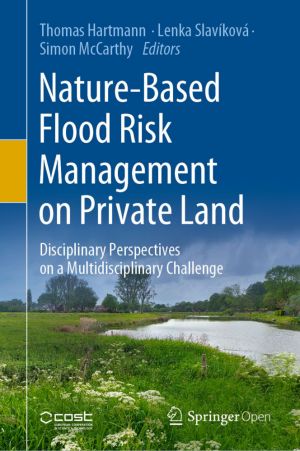
This book addresses the various disciplinary aspects of nature-based solutions in flood risk management on private land. In recent decades, water management has been moving towards nature-based solutions. These are assumed to be much more multi-purpose than traditional "grey infrastructures" and seem to be regarded as a panacea for many e...
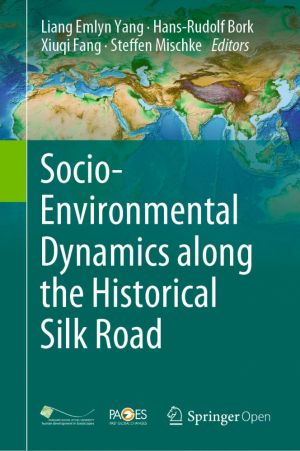
This book discusses socio-environmental interactions in the middle to late Holocene, covering specific areas along the ancient Silk Road regions. Over twenty chapters provide insight into this topic from various disciplinary angles and perspectives, ranging from archaeology, paleoclimatology, antiquity, historical geography, agriculture, carving ar...
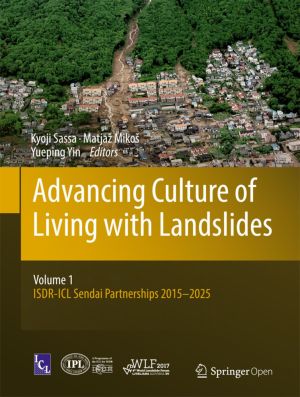
This volume contains peer-reviewed papers from the Fourth World Landslide Forum organized by the International Consortium on Landslides (ICL), the Global Promotion Committee of the International Programme on Landslides (IPL), University of Ljubljana (UL) and Geological Survey of Slovenia in Ljubljana, Slovenia from May 29 to June 2, 2017. The compl...
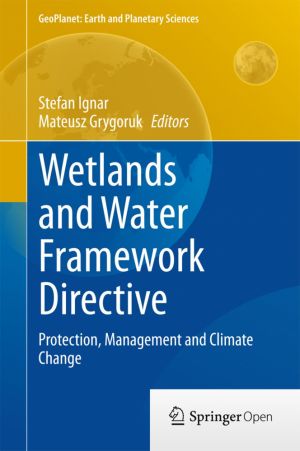
This book compares the lessons learned from a wetland-perspective approach to the changing climate and the requirements of the Water Framework Directive (WFD) with regard to environmental conservation. Examples from Germany and Poland are discussed due to the efficiency of their respective implementations of water conservation policies. Although th...
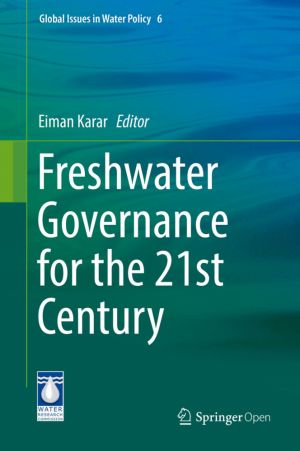
The objective of this book is to broadly illustrate the key aspects of water governance, mapping the spectrum of decision-making from techno-centric and eco-centric approaches, to hybrid concepts and people-centric approaches. Topics covered include the challenges for water-governance models, the polycentric model, the integration challenge, water ...
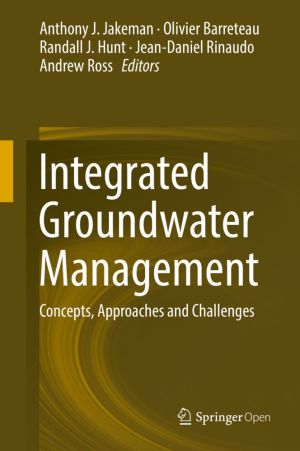
The aim of this book is to document for the first time the dimensions and requirements of effective integrated groundwater management (IGM). Groundwater management is a formidable challenge, one that remains one of humanity's foremost priorities. It has become a largely non-renewable resource that is overexploited in many parts of the world. I...
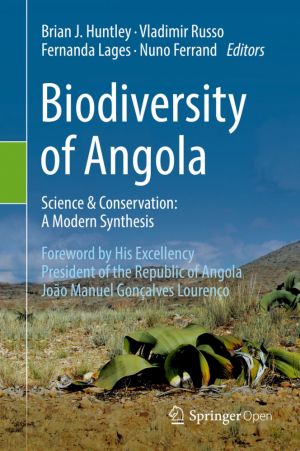
This book presents a 'state of the science' synthesis of knowledge on the biodiversity of Angola, based on sources in peer-reviewed journals, in books and where appropriate, unpublished official reports. The book identifies Angola as one of the most biologically diverse countries in Africa, but notes that its fauna, flora, habitats and th...
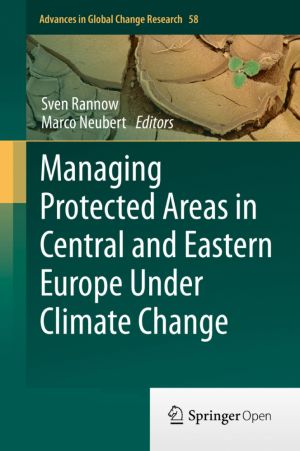
Beginning with an overview of data and concepts developed in the EU-project HABIT-CHANGE, this book addresses the need for sharing knowledge and experience in the field of biodiversity conservation and climate change. There is an urgent need to build capacity in protected areas to monitor, assess, manage and report the effects of climate change and...
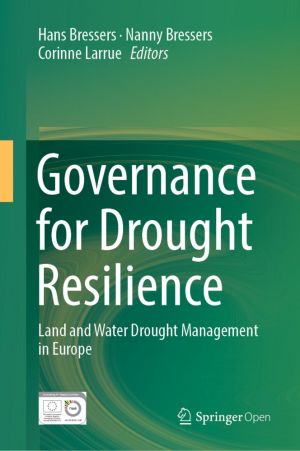
This book presents the findings of a team of scientists and practitioners who have been working on the project "Benefits of Governance in Drought Adaptation" (in short: the DROP project), which is included in the European Union's INTERREG IVB NWE programme. The DROP governance team developed a Governance Assessment Tool (GAT), which ...
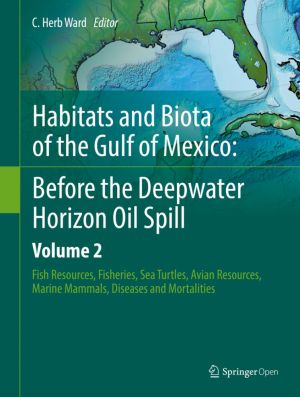
The Gulf of Mexico is an open and dynamic marine ecosystem rich in natural resources but heavily impacted by human activities, including agricultural, industrial, commercial and coastal development. Nutrients and pollutants from coastal communities and dozens of rivers flow into the Gulf, including material from the Mississippi River watershed, whi...
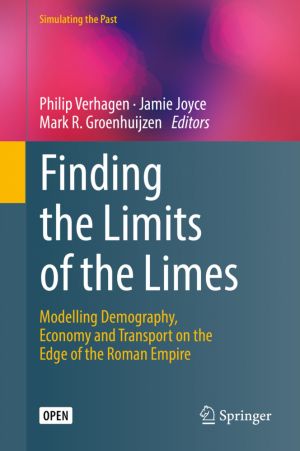
This book demonstrates the application of simulation modelling and network analysis techniques in the field of Roman studies. It summarizes and discusses the results of a 5-year research project carried out by the editors that aimed to apply spatial dynamical modelling to reconstruct and understand the socio-economic development of the Dutch part o...
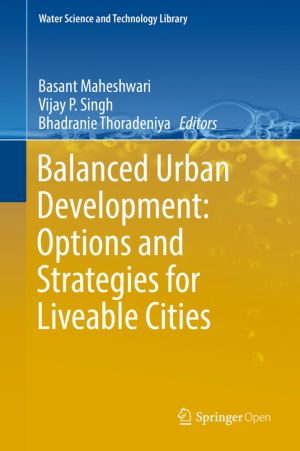
This book provides a unique synthesis of concepts and tools to examine natural resource, socio-economic, legal, policy and institutional issues that are important for managing urban growth into the future. The book will particularly help the reader to understand the current issues and challenges and develop strategies and practices to cope with fut...
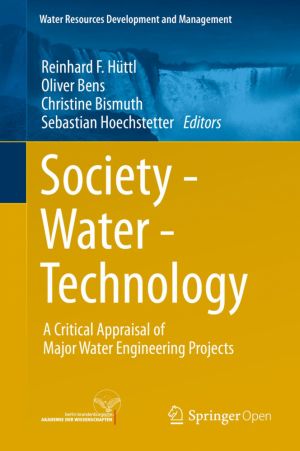
This book presents the results of the Interdisciplinary Research Group "Society – Water – Technology" of the Berlin-Brandenburg Academy of Sciences and Humanities. It describes interdisciplinary evaluation criteria for major water engineering projects (MWEPs) and portrays an application to the Lower Jordan Valley (Middle East) and th...
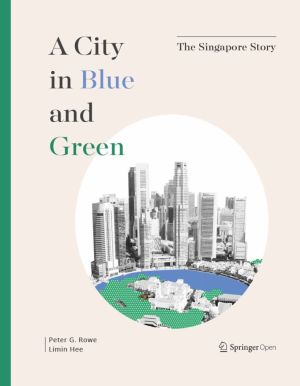
This book highlights Singapore's development into a city in which water and greenery, along with associated environmental, technical, social and political aspects have been harnessed and cultivated into a liveable sustainable way of life. It is also a story about a unique and thoroughgoing approach to large-scale and potentially transferable w...
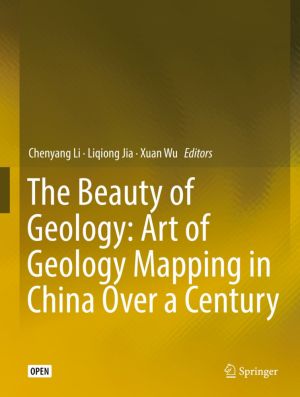
This book contains a collection of rare geologic maps and figures made by Chinese geologists in the last century. Preserved in National Geological Archives of China, these artworks demonstrate the development and innovation of geological mapping technology in China in the past 100 years. The collections are highly scientific and artistic, with most...
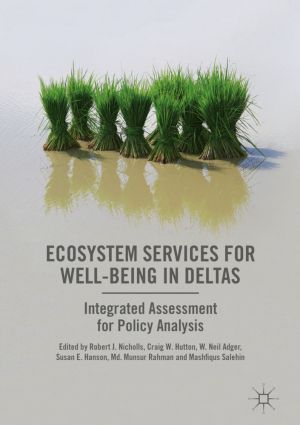
This book answers key questions about environment, people and their shared future in deltas. It develops a systematic and holistic approach for policy-orientated analysis for the future of these regions. It does so by focusing on ecosystem services in the world's largest, most populous and most iconic delta region, that of the Ganges-Brahmaput...

This book is the comprehensive volume of the TAIGA ("a great river " in Japanese) project. Supported by the Japanese government, the project examined the hypothesis that the subseafloor fluid advection system (subseafloor TAIGA) can be categorized into four types, TAIGAs of sulfur, hydrogen, carbon (methane), and iron, according to the ...
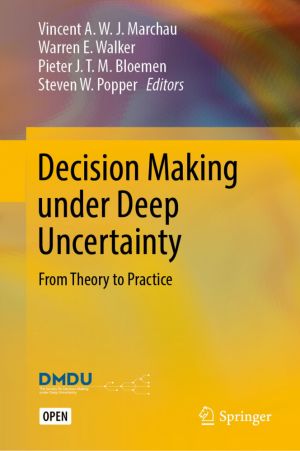
This book focuses on both the theory and practice associated with the tools and approaches for decisionmaking in the face of deep uncertainty. It explores approaches and tools supporting the design of strategic plans under deep uncertainty, and their testing in the real world, including barriers and enablers for their use in practice. The book broa...
